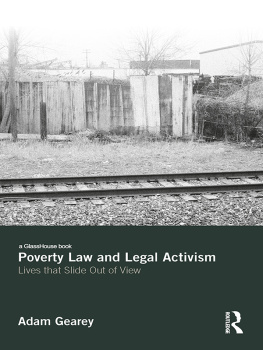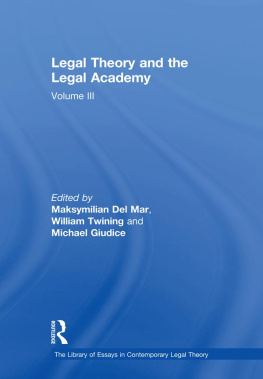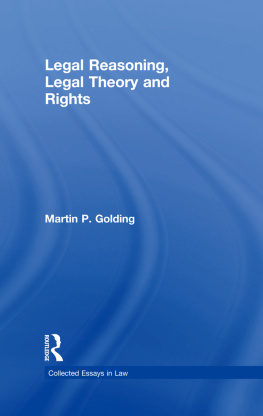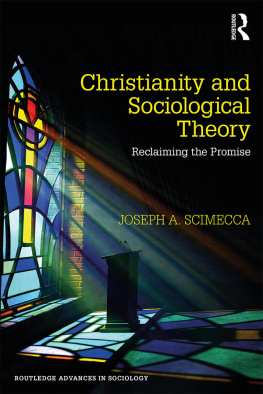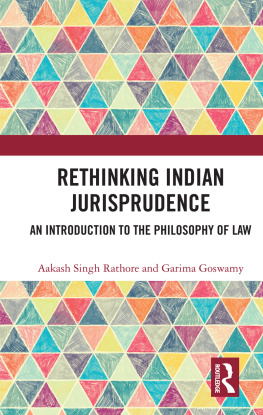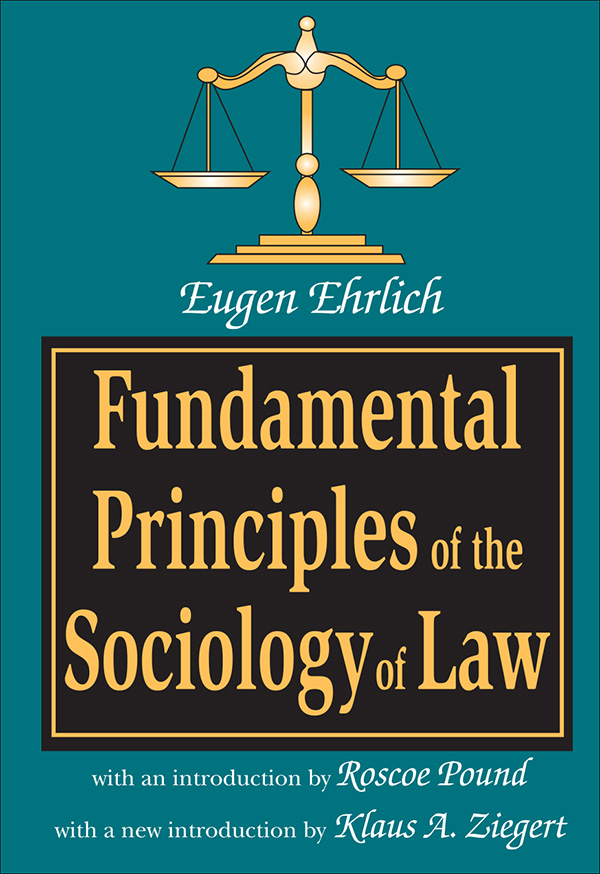Contents
Fundamental Principles of the Sociology of Law
Law & Society Series
Ancient Law
Henry Sumner Maine
with an introduction by Dante J. Scala
An Introduction to the Sociology of Law
Nicholas S. Timascheff
with an introduction by Trevino
Critique of the Legal Order
Richard Quinney
with an introduction by Randall G. Shelder
Fundamental Principles of the Sociology of Law
Eugen Ehrlich
with a new introduction by Klaus A. Ziegert
Penal Philosophy
Gabriel Tarde
with a new introduction by Piers Beirne
Sociology of Law
Georges Gurvitch
with a new introduction by Alan Hunt
The General Theory of Law and Marxism
Evgeny Bronislavovich Pashukanis
with a new introduction by Dragan Milovanovic
The Social Reality of Crime
Richard Quinney
with a new introduction by A. Javier Trevino
Eugen Ehrlich
Fundamental Principles of the Sociology of Law
with an introduction by Roscoe Pound
with a new introduction by Klaus A. Ziegert

Originally published in 1936 by Harvard University Press
Published 2002 by Transaction Publishers
Published 2017 by Routledge
2 Park Square, Milton Park, Abingdon, Oxon 0X14 4RN
711 Third Avenue, New York, NY 10017, USA
Routledge is an imprint of the Taylor & Francis Group, an informa business
New material this edition copyright 2002 Taylor & Francis
All rights reserved. No part of this book may be reprinted or reproduced or utilised in any form or by any electronic, mechanical, or other means, now known or hereafter invented, including photocopying and recording, or in any information storage or retrieval system, without permission in writing from the publishers.
Notice:
Product or corporate names may be trademarks or registered trademarks, and are used only for identification and explanation without intent to infringe.
Library of Congress Catalog Number: 00-042600
Ehrlich, Eugen, 1862-1922.
[Grundlegung der Soziologie des Rechts. English]
Fundamental principles of the sociology of law / by Eugen Ehrlich ; translated by Walter L. Moll ; with an introduction by Roscoe Pound ; with a new introduction by Klaus A. Ziegert. p. cm.
Originally published: Cambridge, Mass. : Harvard University Press, 1936, in series: Harvard studies in jurisprudence ; vol. 5.
Includes index.
ISBN 0-7658-0701-7 (paper : alk. paper)
1. Sociological jurisprudence. I. Title.
K372. E38413 2000
370' .115dc21 00-042600
ISBN 13: 978-0-7658-0701-4 (pbk)
Translated by Walter L. Moll.
Dedicated To
PAUL FREDERIC GIRARD
AS A TOKEN OF FRIENDSHIP AND ESTEEM
Contents
THE present volume is a translation of Grundlegung der Soziologie des Rechts by Eugen Ehrlich; this is one of the most important works of the trend in jurisprudence that has been called the Sociological School. During the course of the nineteenth century a succession of schools of jurisprudence appeared in Europe, each of which arose by way of reaction from the teachings of its predecessor, which it superseded for the time being. Each school laid especial emphasis on some particular basic point of doctrine or method. Perhaps it over-emphasized its particular point of view, and thereby made a reaction from this over-emphasis inevitable. Thus a new school would arise with a new doctrine or with a new method, which it in turn over-emphasized, thus setting the stage for the appearance of another school of juristic thought. Each school gave way to its successor. But the new school by no means destroyed the work its predecessor had done. Each school has made a contribution of more or less abiding value to the scientific study of law, and so there has grown up a vast store of permanent juristic material, of generally accepted principles and points of view. Let it be remembered that a school of jurisprudence is not identical with the method which it chiefly employs. Neither the Historical School of Savigny and Puchta, for example, nor the Historical School of Sir Henry Maine is identical with the historical method. The school of Savigny has passed away, but the historical method has remained. All that has passed away is the one-sided emphasis on certain self-imposed limitations and principles. Modern writers have availed themselves of the abiding truths and principles found by these various schools of juristic thinking, and while it is true that each writer has selected his own particular method of approach and his own particular point of departure under the influence of the particular school by the teachings of which his own thinking is chiefly dominated, it is also true that juristic writers have come much closer together in their forms and modes of thinking than hereto- fore, and many have found a common ground in the principle that the basic thing in the formulation of legal theory is not the individual as such, with his individual will, purposes and aims, but society as a whole; not the various legal precepts as such, but the social order, i.e. the just {richtig) ordering of modern society through law; not the old abstract individualist legal justice, but the new " social justice." One of the chief among recent Continental exponents of this new trend in jurisprudence is Eugen Ehrlich. Ehrlich was born at Czernowitz in Bukowina He died shortly after the close of the war.
In his Grundlegung der Soziologie des Rechts, Ehrlich has shown that the phenomena of legal life arise in society, and in turn exercise a profound influence upon society. In his Die juristische Logik, he has discussed and rejected the idea that predominated among jurists of his day that every judicial decision must be derived by a purely logical process from established legal premises, the provisions of a code or of statutes or of juristic or judge-made law. He has set forth the social interrelations from which this idea has arisen, and has shown the social consequences of the idea. To this extent this work supplements the Grundlegung der Soziologie des Rechts.
These two books may be called a summary of Ehrliches views and teachings; for in them he has discussed in a connected fashion the fundamental ideas of all his works. In view of Ehrlich's article, "The Sociology of Law/' in 36 Harvard Law Review 130, it would be carrying coals to Newcastle to give a rsum of these two books here; for in this article Ehrlich has given a concise statement of their contents in his own inimitable manner. I shall quote two paragraphs from his article because they contain a clear and succinct statement of what is, in his view, the nature of law. He says on page 131:
Those who proclaim a multiplicity of Laws understand by "Law " nothing other than Legal Provisions, and these are, at least today, different in every state. On the other hand, those who emphasize the common element in the midst of this variety are centering their attention not on Legal Provisions but on the Social Order, and this is among civilized states and peoples similar in its main outlines. In fact many of its features they possess in common even with the uncivilized and the half-civilized.


